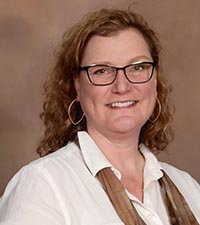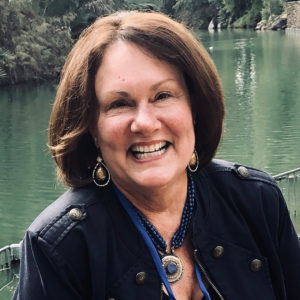
Rev. Dolly Jacobs
Associate Pastor for Pastoral Care
Thursday night my daughter Sydney and I attended a service of Lament and Repentance on the steps of the FPC Sanctuary. It was crafted by our Batts’ pastoral residents (Nate Sell, Alexandra Mauney, and Keith Dove) and our Director of Discipleship and Young Adult Ministry Matt Logan. (See the video here)
I was grateful for their leadership, their intentionality, their love and care through their liturgies and their silence. 8 minutes and 46 seconds of silence.
I held my head in my hands and all I kept hearing were the words, “I cannot breathe.” For 8 minutes and 46 seconds, those were the words that filled the silence.
In this moment, we, as Christians, must speak up and speak out for all who cannot breathe: for those who are sick, those who are hungry, those who are unjustly targeted and imprisoned, those who have never had a voice and continue to suffer in silence.
I am in awe and admiration of so many of my pastoral colleagues on our staff who are leading us in different ways.
Please read about Rev. Maria Hanlin’s experience on Sunday June 7th in downtown Greensboro, below.
May we all silence ourselves and listen … listen and learn so that all might be able to breathe.
— Dolly Jacobs, Associate Pastor for Pastoral Care
#ChangeIsGonnaCome
 Change is Gonna Come. That’s the title of a song Sam Cooke wrote in 1964. That song became an anthem for the civil rights movement. The third verse says, “Then I go to my brother / And I say brother help me please / But he winds up knockin’ me / Back down on my knees”. That’s what it feels like to be black in this society. But on Sunday, June 7th in Greensboro’s LeBauer Park, we saw brothers and sisters and siblings, white and black and brown, young and old and middle-aged, coming together to proclaim that now is the moment for change.
Change is Gonna Come. That’s the title of a song Sam Cooke wrote in 1964. That song became an anthem for the civil rights movement. The third verse says, “Then I go to my brother / And I say brother help me please / But he winds up knockin’ me / Back down on my knees”. That’s what it feels like to be black in this society. But on Sunday, June 7th in Greensboro’s LeBauer Park, we saw brothers and sisters and siblings, white and black and brown, young and old and middle-aged, coming together to proclaim that now is the moment for change.
I was born in Montgomery, AL in 1958. My high school was named for Robert E Lee, and our rival school was Jefferson Davis. The confederate flag flew over the state capital and many school clubs posed on the capitol steps where Lee was inaugurated as President of the Confederacy. We knew that change was gonna come. But it hadn’t arrived yet.
Thirty years later, my husband, Tim, and I lived in Charlotte with our three children, Anna, Carey, and Brittany, who is black. Our home was in a nice area of town that offered great opportunities for our kids. But being black in that part of town came with issues. One night, Brittany was pulled over by police with guns drawn in front of our house. Why? “She. Looked. Suspicious.” In front of her own home. We knew that change was gonna come. But it hadn’t arrived yet.
This past Sunday was a hot and humid day, 90 degrees in the shade. But that didn’t stop over 2,500 people of all colors and backgrounds and ages from showing up to protest the deaths of George Floyd, Breonna Taylor, Ahmaud Arbery (and so many more), calling for police reform and the elimination of racial injustice against the black community.
We stood with clergy, church leaders and many people from our church, in the back of the crowd. All the speakers were black. As whites, we were there to listen. Words were spoken naming injustice, discrimination, and acts of violence many of us would like to believe didn’t exist. We carried a sign, “Dude, you’re still on mute. #EndWhiteSilence.”
Because of COVID 19, we all wash our hands and wash our hands and wash our hands. But as we continue in the 401-year pandemic called systemic racism, our God of love commands us not to feel free to wash our hands. Thoughts and prayers are not enough. We must listen to our black and brown siblings, speak up even as imperfectly as our words might be, and be committed to act for the rest of our lives.
We know that change is gonna come. Maybe it’s finally here. May we be committed to work to make it happen.
— Maria Hanlin, Pastoral Care
